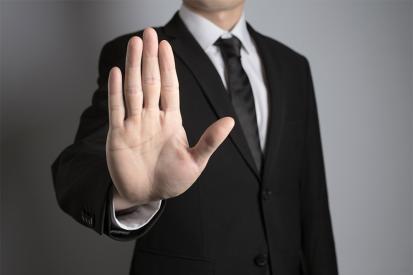The Real-Life Consequences of Cancel Culture


The National Committee for Religious Freedom (NCRF) is a non-partisan and interfaith nonprofit that exists to defend “religious freedom equally for all Americans and all their religious communities.”
Led by former U.S. Ambassador Sam Brownback, NCRF’s National Advisory Board includes figures like former U.S. Attorney General Jeff Sessions, former Alliance Defending Freedom President & CEO Michael Farris, and Family Research Council President Tony Perkins.
But despite NCRF’s credibility and its legal status as a 501(c)(4) nonprofit, JPMorgan Chase canceled the organization’s checking account shortly after it opened in 2022. Employees of the nation’s largest bank stonewalled NCRF and refused to explain why it canceled the account.
Finally, Chase said it could “potentially” re-open NCRF’s account if the nonprofit took three actions: 1) disclose a list of donors who contributed more than 10 percent of its operating budget; 2) hand over a list of political candidates NCRF intended to support; and 3) divulge the criteria NCRF uses to decide who to support politically. Understandably, NCRF declined to do so.
JPMorgan Chase later said it was concerned about money laundering and bribes, and Jamie Dimon said at the annual shareholder meeting that NCRF just failed to “fill out all the forms.” But these explanations were contradictory and untrue. Chase never provided a meaningful explanation for canceling the account or demanding sensitive information from NCRF. By all available evidence, the saga appears to be an example of cancel culture in which JPMorgan Chase targeted NCRF because it disagreed with the organization’s beliefs.
While the term “cancel culture” has been used extensively in recent years, it has come to mean different things to different people. Before taking a deep dive into cancel culture and its potential negative effects, it is important to understand exactly how we understand the term.
What is cancel culture?
“Cancel culture” is a buzzword that broadly describes the phenomenon of people attempting to publicly shame and negatively affect celebrities, politicians, organizations, or even just ordinary people for something they have said or done. Cancel culture usually includes calls to fire someone or censor a person’s online presence.
Sometimes, people are “canceled” by private corporations like Meta or Chase that wield enormous power simply for expressing beliefs or ideas that differ from the prevailing political or social opinions.
Cancel culture has become increasingly prevalent in an online world, where social media mobs launch intense criticism at victims and call for them to be punished. But as Fred Bauer argues at National Review, cancel culture doesn’t stop at the doors of social media. Instead, it “is often about translating this digital criticism into real personal pain.”
Cancel culture is mob justice
One common refrain from people defending cancel culture is that it is simply a way for ordinary people to hold those in power accountable when they do something wrong. All too often, however, cancel culture is just the opposite: powerful people harassing the powerless.
“In terms of cancel culture, I think it’s misnamed, that’s a misnomer,” actor LeVar Burton told The View in 2021. “I think we have a consequence culture and that consequences are finally encompassing everybody in the society.”
But the truth is that it is large organizations and those in power, often at the behest of activists, who are cancelling individuals, ministries, and other organizations simply because of their political or religious views. Take, for example, former Mozilla CEO Brendan Eich.
Eich, who created the JavaScript programming language, was named CEO of Mozilla in March 2014. But he immediately came under fire for a donation he had made six years prior in support of a California ballot proposition that sought to affirm marriage as between a man and a woman.
In addition to the myriad attacks against Eich on social media, the dating website OKCupid targeted him for holding beliefs about marriage that OKCupid executives disagreed with. Users who accessed the website using Mozilla’s Firefox browser were greeted with a message that said, “Mozilla’s new CEO, Brendan Eich, is an opponent of equal rights for gay couples. We would therefore prefer that our users not use Mozilla software to access OkCupid.”
Less than two weeks after his appointment, Eich stepped down as Mozilla CEO amid the backlash.
Harmeet Dhillon, who was the vice chairman of the California Republican Party at the time, said Eich’s views and experiences were hardly isolated in Silicon Valley. “Many people have told me they’re afraid to identify themselves as conservatives,” she said after Eich’s resignation. “We face issues of political correctness all the time.”
Relentlessly attacking people until they lose or are forced to quit their jobs because you disagree with their beliefs is not an example of advocating for appropriate consequences. It is often an example of intolerance and opposition to freedom.
ADF and cancel culture
At Alliance Defending Freedom, protecting free speech is a key part of our mission. Punishing people for sharing their beliefs threatens the free exchange of ideas, which is guaranteed by our Constitution and grounded in our God-given rights. We have defended and continue to defend the right of all Americans to speak freely.
Jack Denton
One victim of cancel culture defended by ADF was Florida State University student Jack Denton. As a rising senior, Jack was elected Student Senate president and was actively involved in the Catholic Student Union.
When Florida State students were forced to move online due to COVID-19 pandemic restrictions, Jack and other members of the Catholic Student Union used a group chat to stay in touch. One student sent a video that raised money for organizations that promote explicitly anti-Catholic policy positions, including BlackLivesMatter.com and the ACLU, so Jack felt compelled to speak up so his fellow Catholic students would have all the facts about what they might be financially supporting.
“I don’t mean to anger anyone – I know this is a very emotional topic,” Jack wrote in a message. “However, it is important to know what you’re supporting when you’re Catholic. If I stay silent while my brothers and sisters may be supporting an organization that promotes grave evils, I have sinned through my silence. I love you all, and I want us all to be aware of the truth.”
Even though many of Jack’s classmates in the Catholic Student Union agreed with him, one student who held different views shared a screenshot of the message with members of the Student Senate. The message quickly spread online, where other students twisted Jack’s words and called him “transphobic” and “racist.”
As is often the case with cancel culture, the hatred didn’t stop online. Jack was soon subjected to a seven-hour Zoom call in which students berated him and called him names, culminating in his removal from his position as president.
ADF filed a lawsuit on Jack’s behalf, and thankfully, a federal court ruled for Jack, and the Florida State’s Student Supreme Court reinstated Jack to his position.
The rise of de-banking
Another kind of cancel culture that has recently emerged is de-banking. In this process, banks abruptly close the accounts of people or organizations under circumstances strongly suggesting the closures were motivated by disagreement with the customers’ religious or political beliefs. It is exactly what happened to NCRF when JPMorgan canceled its checking account without explanation.
Indigenous Advance Ministries, a Tennessee-based ministry that serves widows and orphans in Uganda and strives to equip Ugandans to share the truth of the Gospel with others, also suffered from a recent de-banking ploy.
In 2023, Indigenous Advance founder Steve Happ received a series of letters from Bank of America informing him that the bank was closing the ministry’s accounts. The bank only said it no longer wanted to serve Indigenous Advance’s “business type” and that the charity exceeded its “risk tolerance.” Banks often cite vague “risk tolerance” or similar policies to justify de-banking customers.
ADF attorneys filed a consumer complaint on behalf of Indigenous Advance, which, though unsuccessful, led to Tennessee passing landmark legislation protecting customers from de-banking by big banks..
In another concerning incident, documents obtained by the U.S. House Select Subcommittee on the Weaponization of the Federal Government showed that the U.S. Treasury Department had colluded with big banks to monitor ADF and other mainstream religious and conservative organizations.
ADF Senior Counsel and SVP of Corporate Affairs Jeremy Tedesco testified before the subcommittee in March 2024 and detailed the dangers of this blatant government discrimination. Despite attempts to silence, censor, or otherwise punish us for our beliefs, ADF continues undeterred in our work advocating for the freedoms of all.
The Southern Poverty Law Center’s ‘hate group’ label
The Southern Poverty Law Center (SPLC) is a powerful and well-funded organization that tries to “cancel” groups and individuals on a regular basis. The organization attacks people who disagree with its radical agenda, labeling individuals and organizations as “extremists” or “hate groups.” The SPLC has made millions while impoverishing the public square of civil discourse.
The SPLC has falsely characterized ADF and several of our allies as “hate groups,” and unfortunately, some organizations have made decisions to cancel ADF based on the SPLC’s baseless claims. For example, ADF was booted from AmazonSmile, Amazon’s now-defunct charity support program, in 2018. The SPLC has also baselessly smeared ADF as “white nationalist” because of its efforts to protect citizens from politicized de-banking and restore a culture of free speech and respect for viewpoint diversity in corporate America.
At the same time, we have continued to stand up to the SPLC’s lies and have seen great success in advancing the God-given right to live and speak the truth. Through God’s providence, ADF has achieved 15 victories at the U.S. Supreme Court since 2011.
Conclusion
It is natural and even right for actions to have consequences. But cancel culture often creates unnatural consequences by using mob justice to punish people simply for expressing their beliefs, and it regularly excludes any opportunity for growth and forgiveness. In a society dedicated to justice for all and governed by free speech, people shouldn’t risk losing their jobs or livelihoods simply for sharing their opinions.
Engaging in cancel culture against beliefs one dislikes has a chilling effect on free speech. Thankfully, ADF has successfully defended free speech and religious freedom for people like Jack Denton, and we will continue working to advance everyone’s God-given rights to live and speak the truth.

